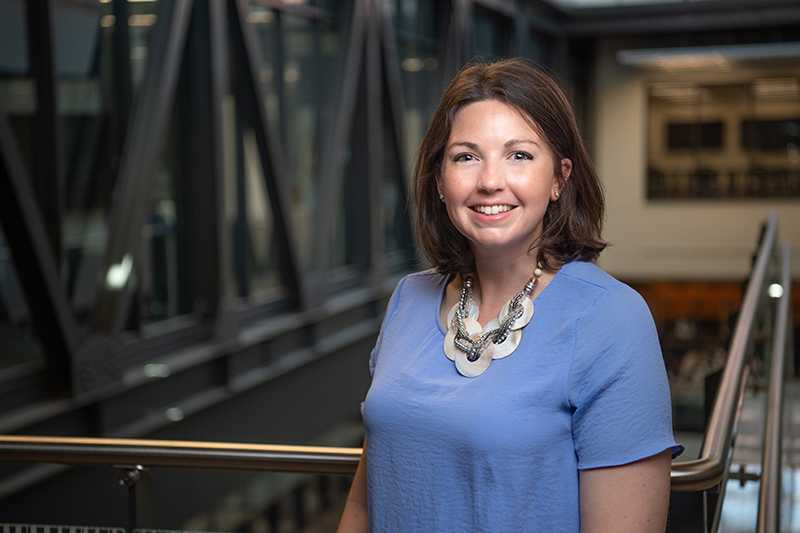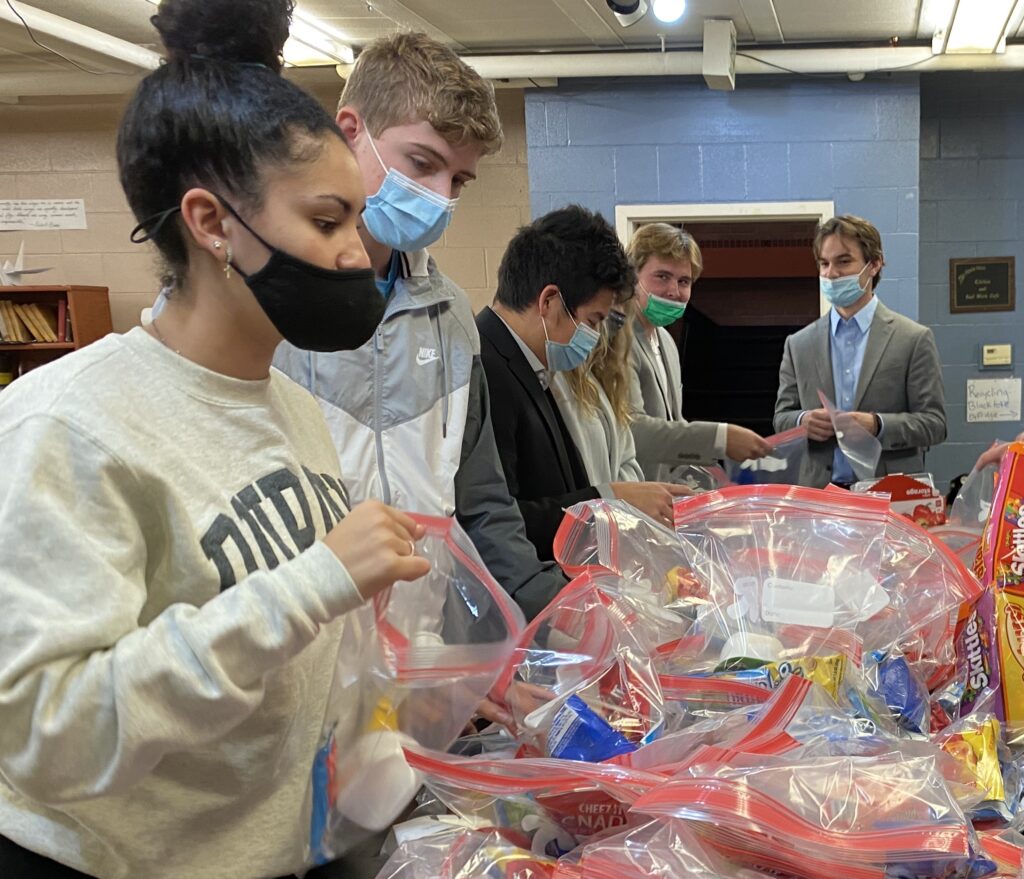Spotlight on service-learning: Lindsay Hamm
Through her service-learning sociology course, Lindsay Hamm works to equip Boilermakers with tools to tackle the problems of today and build a better tomorrow.

Since 2017, Lindsay Hamm has worked to equip her students with tools to tackle the problems of today and build a better tomorrow. Assistant teaching professor in the Department of Sociology at Purdue University, she began teaching SOC 411 in the Fall of 2021, a course focusing on the topic of local food insecurity.
Hamm orients service-learning on the pillars of reflection, community, and hope. “Sociology is usually very sad,” says Hamm, but she takes a different approach. Looking at systemic issues from a foundation of hope, her students are able to assess a difficult situation, stay solution-focused, and ask themselves, “Where do we go from here?”
Hamm was first inspired to consider service-learning after attending the Purdue University Office of Engagement’s annual Engagement & Service-Learning Summit the year before COVID hit. When she received an email about resources for designing a service-learning course, it was serendipity. With encouragement from her department, and Service-Learning resources and support from the Office of Engagement, Hamm transformed her course.

Through SOC 411, Hamm encourages her students to become active participants within their communities. By partnering with ACE Campus Food Pantry at Purdue, her students learn how a seemingly external issue, such as food insecurity, involves them, and they begin to understand the opportunities they have to be a part of the solution.
“We aspire to help ACE Food Pantry in their mission to end food insecurity on campus,” says Hamm. “We get a lot more from the pantry than they get from us. I am very grateful that they work with me before and during every semester to discuss my goals for my students in SOC 411. My ultimate hope is to eventually be as helpful to them as they have been to me and my students.”
For Hamm, there is a marked difference between volunteer work and service-learning. Volunteering is usually an acute act, while critical service-learning aims to reach the root of the problem. From a sociological approach, continuous reflection on how inequality is created and reproduced, and education on how to resist this, it what elevates volunteering to critical service-learning. She says, “We have to join organizations led by people in the affected community to work on the bigger structural changes that will address the roots of the problem individuals are facing.”
We aspire to help ACE Food Pantry in their mission to end food insecurity on campus. My ultimate hope is to eventually be as helpful to them as they have been to me and my students.
It is vital to Hamm that her students reflect on their own belief systems, so that they are better able to exercise their agency in mitigating problems – especially when dealing with unconscious biases towards the very communities they are trying to help.

Hamm challenges students to engage with the people they work with by introducing them to concepts of mutual aid. By working with the ACE Food Pantry, students become aware of the resources they can access on campus. They form a connection with the pantry that goes beyond volunteering and into community-building. Some students have begun using the pantry and some students have even become long-term volunteers after they complete the course.
For those looking to involve themselves in service-learning work, Lindsay Hamm leaves us with three direct pieces of advice:
- Analyze your values.
- Find good community partners.
- In the learning process, start where you won’t be a burden.
The ACE Campus Food Pantry is a student-run resource on Purdue’s campus. Anyone with a student ID can access the pantry.
Source: Office of Engagement service-learning intern Kamilah Valentin-Diaz.